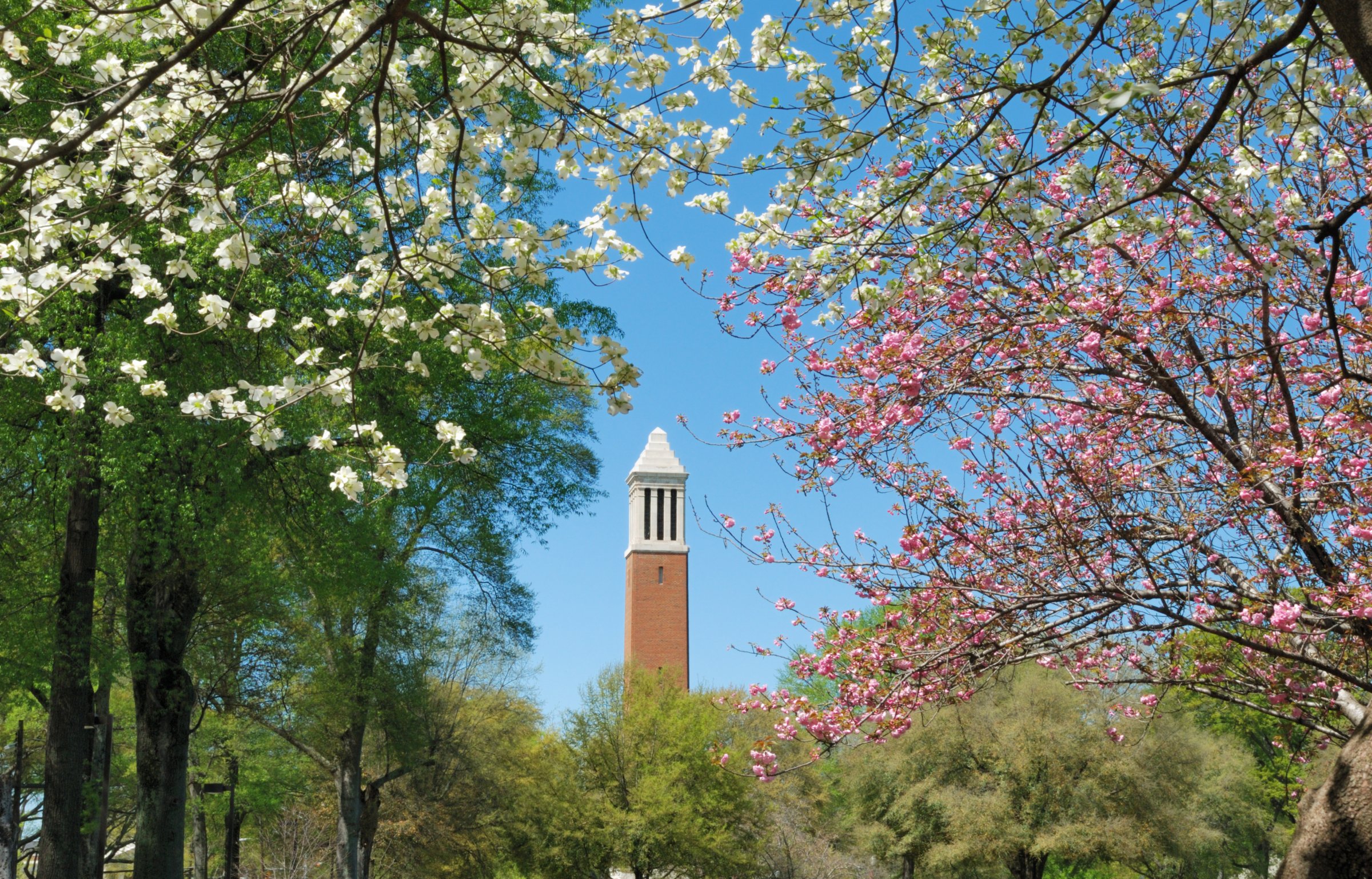
More than 1,000 students have tested positive at the University of Alabama’s Tuscaloosa campus in less than two weeks, stoking fears that colleges reopening for in-person classes could contribute to a surge in COVID-19 cases.
Since in-person classes started on Aug. 19, a total of 1,043 students have tested positive for coronavirus at the campus, the university system reported Friday, although no students were hospitalized for the virus at that time.
University President Stuart R. Bell called the rise in cases “unacceptable” in a statement on Aug. 23. On Aug. 21, before the recent numbers were reported, he said that he was “deeply disappointed” that many students disregarded guidelines set by the university to keep the school safe. On Aug. 26, Bell urged the campus to come together to limit the spread of the virus.
“At this critical time, we must be united and fully committed in our fight against COVID-19. I believe we will be successful this semester, and we all want to remain on campus throughout this fall, but we can only do so with your daily assistance,” Bell said on Aug. 26.
Only nine faculty and staff members have tested positive for the virus at the campus during that period. An additional 10 students at each the university’s Birmingham and Huntsville campuses also tested positive from Aug. 19 to Aug. 27.
There is no evidence that the virus has been transmitted during in-person classes, Dr. Ricky Friend, dean of the college of community health sciences, said in a statement Friday.
To curtail the spread of the virus, Tuscaloosa’s mayor ordered bars in the cities to close for two weeks last Monday. Finis St. John, the UA System Chancellor, thanked the mayor for his decision, saying that the “greatest risk” to the university is off-campus transmission.
Many students also tested positive for the virus before arriving on campus. More than 300 students tested positive during entry testing for the Tuscaloosa school, and were not permitted to report to campus, according to the university system. An additional 72 students also tested positive during entry testing for the Birmingham campus, and 18 for the Huntsville campus.
St. John said that the university system has “the most robust testing regimen” in the state, and credited it with “giving us a clear picture of virus spread” at the campuses. The press release did not address the possibility of closing the school, although St. John noted that students can choose to take all their classes online at any time.
Across the country, colleges and universities have employed a wide variety of strategies to limit the spread of the virus. As experts and professors raised concerns about the feasibility of stopping the virus from spreading among young students living closely together, some schools have opted to make all of their classes remote. The University of North Carolina at Chapel Hill shifted to all-remote classes for undergraduates on Aug. 19 after COVID-19 cases surged at the campus.
More Must-Reads From TIME
- The 100 Most Influential People of 2024
- The Revolution of Yulia Navalnaya
- 6 Compliments That Land Every Time
- What's the Deal With the Bitcoin Halving?
- If You're Dating Right Now , You're Brave: Column
- The AI That Could Heal a Divided Internet
- Fallout Is a Brilliant Model for the Future of Video Game Adaptations
- Want Weekly Recs on What to Watch, Read, and More? Sign Up for Worth Your Time
Contact us at letters@time.com